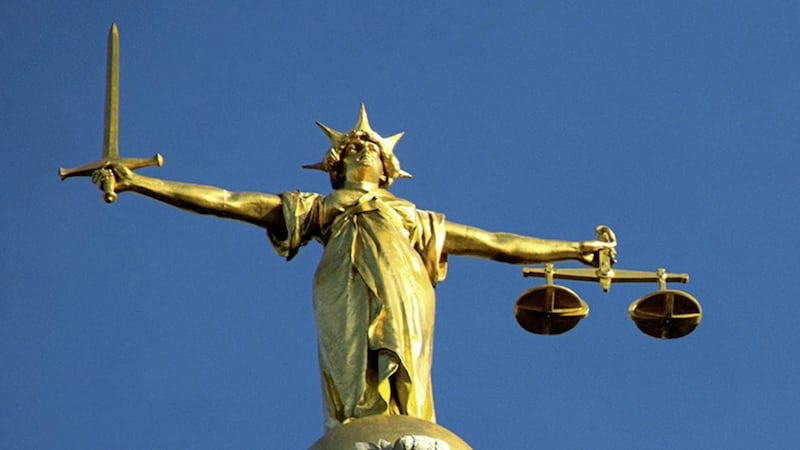ONE thing is clear - the British government's attempt to "draw a line" under the cycles of Troubles investigations and court cases is going to result in more court cases.
From Northern Ireland's former chief prosecutor to its legion of specialist human rights lawyers, the draft proposal has been met with warnings that it is legally unsound.
That challenges through the courts will follow is now inevitable.
Paragraph 34 of the proposals says any cases - including civil proceedings and legacy inquests - which have already begun will be ended when the legislation comes into force.
The government claims their "continued presence in a society which is trying to heal from the wounds of its past risks preventing it being able to move forward".
Veteran human rights lawyer Kevin Winters of KRW Law has branded this a "sinister" and "draconian threat" which "comes on the back of increased judicial oversight and engagement on conflict-related litigation in the courts in our jurisdiction".
There are 45 outstanding legacy inquests - relating to 82 deaths - each with relatives who until Wednesday believed they were on the cusp of a comprehensive legal examination of their loved ones death.
Findings have already been delivered into the death of Patrick McElhone and hearings in the Neil McConville and Kathleen Thompson inquests have concluded.
Four other inquests (Thomas Friel, Thomas Mills, Leo Norney and Stephen Geddis) are listed for hearing between August - November 2021.
As well as the unrecoverable public money and resources already expended on these inquests and civil cases, grieving families and survivors of alleged human rights abuses have also spent considerable sums in their quests for justice.
A spokeswoman for the judiciary signalled that Northern Ireland's courts will continue to work their way through the Lord Chief Justice's five-year legacy plan.
"We note the government is considering a proposed way forward that would end current and future inquests in Troubles-related cases," she said.
"The Coroners will continue to proceed with all legacy inquests until the government's proposals are clarified and legislation enacted."
There are also up to 1,000 civil cases currently going through the courts.
The sheer breadth of the access to justice routes being swept away by the plan has stunned the north's legal fraternity.
Soundings have revealed that far from being a `stalking horse' strategy (forcing opponents to settle for the previously-rejected narrower scope), the Conservative administration regards the plan as `endgame'.
Ministers are reportedly in talks with the Irish government in a bid to win over that sceptical administration.
Government sources have told London's Daily Telegraph that Secretary of State Brandon Lewis "has received legal advice warning unilateral action could heighten the risk of a challenge being successfully brought at the European Court of Human Rights in Strasbourg".
But they indicated it will "press ahead with the legislation regardless of Ireland's stance", confident its information recovery provisions will shield it from the censure of the courts.
Like former Director of Public Prosecutions Barra McGrory, human rights solicitor Darragh Mackin of Phoenix Law is far from convinced.
"It goes much further than an amnesty. Section 4 [of the document] is a very clear attempt to remove anybody's right to ever go to court ever again.
"It is extremely difficult to (bring in) legislation for the removal of rights in that way - the right to access court. Traditional common law protects rights to justice, the right to go to court."
He warned the implications of such legislation being passed by Westminster would render Northern Ireland a "Hong Kongesque" region.
There is scepticism of government claims it is taking the action to protect elderly veterans from vexatious legal action.
Mr Mackin points out there are "only two ongoing cases" and Mr Winters said "criminal cases involving British military veterans are minimal compared to the volume of High Court civil actions alleging various statutory breaches and tortious wrongs including conspiracy to murder, negligence and misfeasance in public office - otherwise known as collusion".
"The British state does not want another finding similar to that in the recent Ballymurphy Massacre 1971 inquest," Mr Winters said.
"It does not want its Prime Minister to be dragged to Parliament again to make an apology as an empty and hollow gesture."
He believes it is a final, desperate roll of the dice by a government to shut off an area where it and its agencies are "most exposed".
"This British state is now openly running scared and using the prosecution of British Army veterans as a ploy.
"This (proposal) represents a serious concern on their part that the courts here are in fact fit for purpose when it comes to the government and its agencies."
Lawyers and legal observers are predicting a `massive battle' ahead, with further litigation the inevitable consequence of this attempt to end all further litigation.
"We are not yet in a totalitarian state where citizens are denied rights to access the courts and I have every confidence that the independence of the judiciary will prevail and protect those inalienable rights," Mr Winters said.







